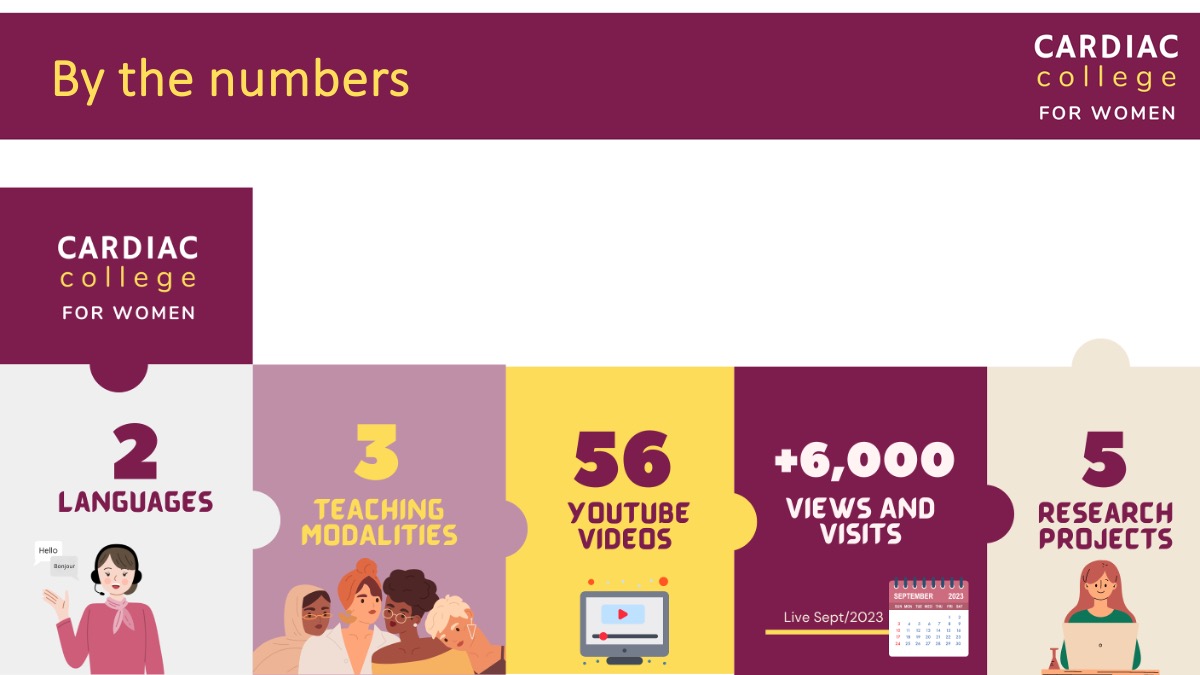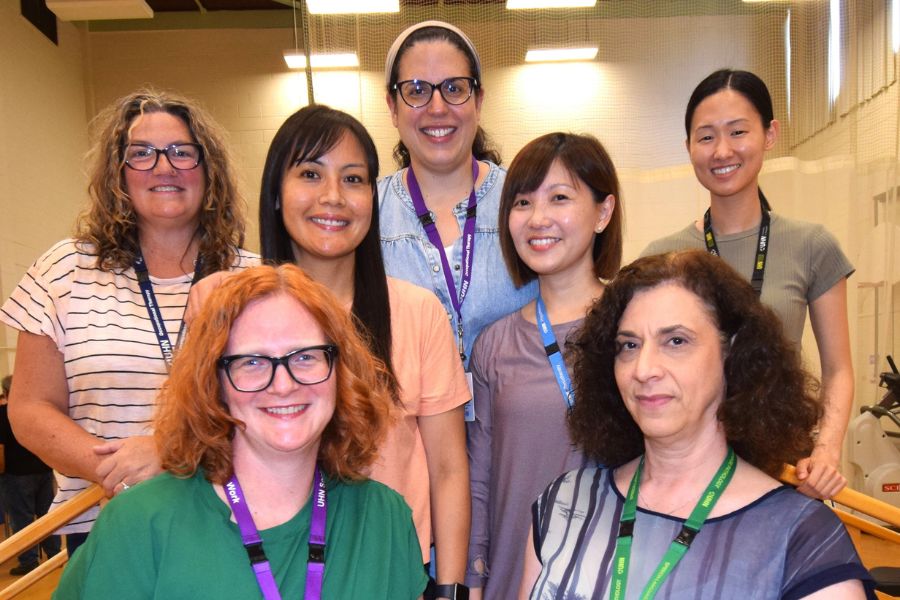
Dr. Gabriela Ghisi, an Affiliate Scientist at KITE Research Institute, has developed “Cardiac College for Women”, the first educational and evidence-informed resource designed for women who are at risk of reexperiencing complications related to cardiovascular disease.
Created in collaboration with experts at University Health Network (UHN) and across the country, this program is the first to address women-specific issues in cardiac rehabilitation, and serves as a resource for patients, their care-partners, health care professionals and trainees. At UHN, developing firsts in cardiac rehabilitation is what we do. Dr. Ghisi is currently completing her work at KITE (Knowledge Innovation Talent Everywhere), one of the principal research enterprises at UHN and a world leader in complex rehabilitation.
Cardiovascular disease (CVD) is one of the leading causes of disability and death, especially among women. CVD is a general term for conditions affecting the heart or blood vessels, usually associated with fatty deposits inside the arteries and an increased risk of blood clots. CVD can cause damage to the arteries in organs such as the brain, heart or kidneys. Heart attack, heart failure and stroke are all outcomes of CVD.
Cardiovascular rehabilitation (CR) programs are used following a CVD episode to reduce future risk and incorporates exercise, risk factor management and patient education as part of its curriculum. On average, these programs can last for approximately two months and patients work with a multidisciplinary team to improve their chances of avoiding future complications. Despite the existence of CR, this resource is critically underused in Canada and around the world, especially for women. Women are less likely than men to be referred to CR programs, and of those admitted, women are less likely than men to enroll and adhere. As a result, women are at a much greater risk of future medical episodes and death.
Although there are some women-focused CR programs and clinical guidelines to address this issue, women still face additional obstacles such as lack of trained staff or other resources needed to provide tailored care.
“This initiative is a significant step towards addressing gender disparities in health education and ensuring that women receive the right resources to take charge of their own well-being,” says Dr. Ghisi.
Cardiac College for Women enhances Cardiac College, an existing CVD resource developed at UHN’s Cardiac Rehabilitation Program, the only evidence-based educational program for CR freely available around the world in 10 different languages. Like Cardiac College, Cardiac College for Women offers free multimedia patient education resources, in both English and French, for the prevention of future CVD complications.

Dr. Ghisi and colleagues consulted multiple resources on CVD patient care, curriculum development and women-focused care to produce this new rehabilitative program – which includes webpages, videos and slides covering essential topics in cardiac rehabilitation which address women’s needs, such as risk factors, exercise, diet, psychosocial well-being and self-management.
Cardiac College for Women incorporates updates in the latest evidence on sex and gender in CR and addresses women-specific issues such as menopause, breast cancer chemotherapy treatments, pregnancy, diet culture, hormone therapy and managing family needs while receiving treatment.
Dr. Ghisi hopes this new resource will improve access to life-saving care for women who are living with CVD across Canada and globally.
“The goal is to empower women in reducing the risk of CVD through informed decision-making and proactive health management,” says Ghisi.
Watch an example video here.
This research was supported by generous donors to UHN Foundation.

No one ever changed the world on their own but when the bright minds at UHN work together with donors we can redefine the world of health care together.


